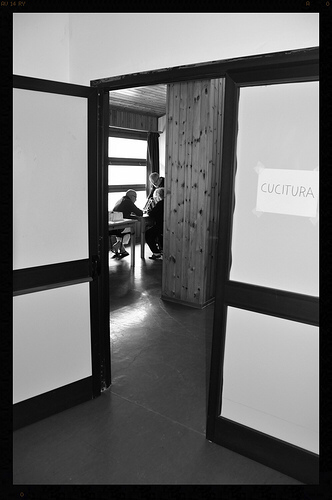 Photo Credit: Stéphane PIA Flickr via Compfight cc Photo Credit: Stéphane PIA Flickr via Compfight cc By Ronald Leach, 9th Dan I always wanted to learn karate. I found an ad for the local YMCA and called to begin classes. This probably wasn’t the best way to begin. I was lucky. I found an instructor that was teaching Taekwon Do, the very traditional TKD, not sport. From him I also learned Shorin-Ryu, Shuri-te, Kyokushin kai, jujitsu and kenjutsu. While l learned, he was learning new arts. I wish everyone could be this lucky. So, you want to take a martial art and the biggest question is what art should you pick? We should back up a bit here and ask, “What do you want out of a martial art?” There a many different answers to this question so let’s split them up into types of martial arts and systems. 1. Martial Arts Sports Aficionado Some people have “Get a black belt” on their bucket list. Spending a lifetime in the martial arts isn’t their goal. Earning a black belt as quickly as possible sounds better. If this is you, I would go looking for a large commercial schools with many students with many kids. These schools produce a black belt in an average of two years. Many of this type of martial arts school will be sports oriented and participate in regular tournaments. Some people are competitive and want competition. There is regular tournament participation and trophies or medals as rewards. You can choose to participate for as long as you wish. Your success will be determined on how skilled you become at sparring and how well you perform forms/kata. (Kata is a series of predetermined moves of blocks, strikes and kicks.) Types of arts that usually fall into this camp are:
MMA (mixed martial arts) draws from multiple systems. Originally, mixed martial arts tournaments were competition between different traditional martial arts such as Shuri-te and Kung Fu. Mixed martial arts, as we see today, was organized through a different path based boxing, and including techniques from kick boxing, jujitsu or any other art that contained something useful. Systems that fall into the fight club category are:
3. The Lifetime Martial Artist Another possibility is to seek knowledge. This would require a more traditional school. These system have a substantial curriculum of techniques and skills for each rank. It is a system that builds on the basics. It will take you 4 to 6 years to earn your first degree black belt from a traditional school. When you attain this black belt, you will be considered proficient in the basics. From this point on, the curriculum should expand you knowledge base at every level. Types of martial arts that usually fall into this category are:
Once you decide what direction you want to go, or are still undecided on the type of art you wish to study, pick some schools in your area and go and observe their classes. Real traditional schools are more difficult to find. You must decide how far you are willing to travel to find the type of school you desire. Ask if you can observe a class. Talk with the instructor and ask questions about the art. Ask about the curriculum and how you work your way through the belts. Find out about how long it takes to get a black belt. This will help determine what you might learn. Don’t take a pseudo wise master persona for lack of transparency. Talk with the students. Look for students with injuries. This is a bad sign. Any school giving a black belt in two years or offers a black belt for a total one-time-fee should be avoided. These schools are money makers for the owners. But, If you just want the black belt and don't care about the knowledge, this would be a possibility. Finally, look at the instructor. Shy away from the disciplinarian. Many time the strict discipline is a cover for lack of knowledge and curriculum. Don’t confuse a strict and harsh disciplinarian with proper etiquette and appropriate discipline. The traditional sensei requires respect and gives greater respect to the student. You should get a sense of humility from the instructor not a bunch of ego or drill sergeant machismo. Everyone knows what humility means but really can’t define it. Let me give you a definition to take with you on your quest through the martial arts. Humility A serene state of mind exhibiting nonjudgmental tolerance and understanding with a modest opinion or estimate of one's own importance. If you find a system or two that you might like, ask if they give complimentary classes. Take those classes and determine if the instruction is what you want. Once you decide, sign up and start. If, after a short time, you find that the school is not what you thought it was, quit and find another school. It is better to cut your losses early. But, it is not a total loss. You will have gained some skills that can help you in a different school.
0 Comments
Your comment will be posted after it is approved.
Leave a Reply. |
AuthorVashon Borich-Leach, Sensei teaches traditional karate and tai chi in Branson, Missouri. She considers herself a life-time student of the arts. Her blog is an open journal of lessons learned in the martial arts. If you are a martial artist and would like to contribute to her blog please contact her. Archives
May 2023
Categories
All
©2012 Branson Karate & Kobudo™
|
©2010-2024 Vashon Enterprises LLC, DBA Branson Karate™
 RSS Feed
RSS Feed

